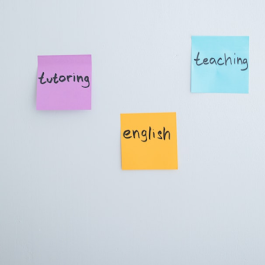English Taking Over
 |
| (Photo Credit: pexels.com) |
The first film focused on how English has become the primary
language for many urban Chinese, especially in business. In almost a single generation,
English went from outlawed too essential. Children born in the 1970’s began
their life speaking only Chinese, but by the 1990’s these young adults were quickly
finding a need to learn English to stay competitive in the workplace. Today, speaking
English has become so vital that almost all Eastern Chinese cities not only have
workshops where English is taught, but have primary level schools teaching English
to young children.
The main interviewee, Bob Shi, spoke, in English, at length
about how his experience of growing up with Chinese being the only language he
grew up with. Over time, he had to learn more and more English to stay competitive
in his trade. He also brought up the fact that as English has taken over more
and more, it has become more of a puzzle for younger people to identify
themselves. As Chinese slowly fades as the primary language, people begin to
question are they more Chinese or more American?
English in the European Union
The second film covered the rise of English in the European
Union, particularly the European Parliament. The European Parliament, in an effort
to be fair, has no one official language, but does recognize three primary
languages for most official work and documents. Those languages are English,
French as German, but as time has gone on many things have moved into English only.
While any Member of the European Parliament (MEP) is allowed to speak any
language that they know, many default to English. This can sometimes lead to confusion,
non-native speakers may accidently speak sentences that are correct grammar in
their native tongue, but incorrect in English.
English is also starting to evolve within the EU itself. The
film mentioned that just like most professional fields, the EU Parliament has a
language of their own. Words or shorthand start to emerge and the language that
is primarily used for these “tools of the trade” are often in English. The film
gives no examples, but one can assume it would be the same as how I know legal
terms and abbreviations commonly used at Edward Jones where I currently work.
What Could go Wrong?
 |
| (Photo Credit: pexels.com) |
Another problem is that non-native speakers of English might
have problems being understood by native speakers. English has very complex grammar
that requires precise usage in order to be recognized. Words like lead can mean
an element or to guide someone. This is very common in English and can be very
confusing to those who do not have a large English vocabulary.
 |
| (Photo Credit: pexels.com) |
English taking over can be both a blessing and a curse to the
entire world. For native English speakers, it feels like no big deal because
there will be more and more people they can understand around the world. For communities
this can mean the death of their native language. While the take over of one
language over another is not new in human history, hopefully we realized we
need to protect all languages no matter how many people speak them.
Works Cited:
Woolston, C., & Osório, J. (2019, June 10). When English is not your
mother tongue. Nature News. https://www.nature.com/articles/d41586-019-01797-0.
Zecca-Naples, N. (2016, April 22). How Latin became the language of the
Roman Empire: Unravel Magazine. Unravel.
https://unravellingmag.com/articles/latin/.



I agree that Globalization of the English language would bring great benefit to those of us who a native English speaking, but imagine is the Global language was Mandarin Chinese. In other countries it is mandated that to graduate high school you must learn English. Perhaps there should be a similar mandate in the US that to graduate high school, students must learn Spanish or French (given Mexico to our south and Canada to our north).
ReplyDelete